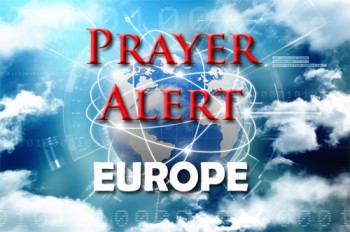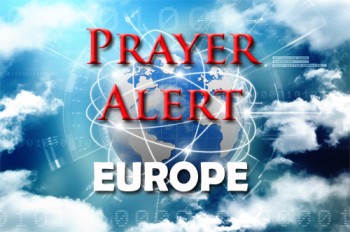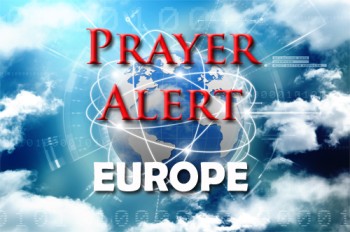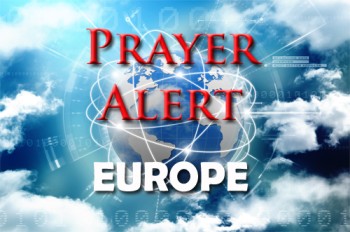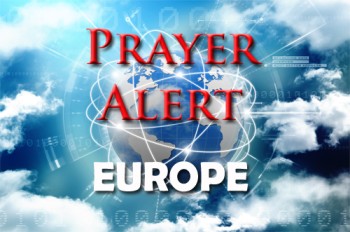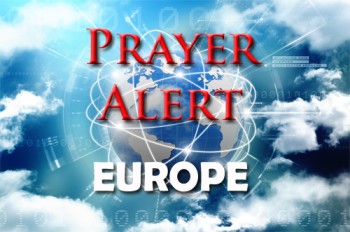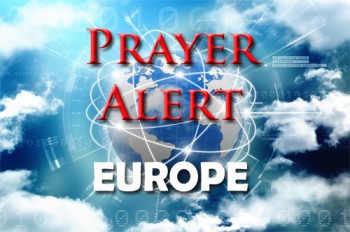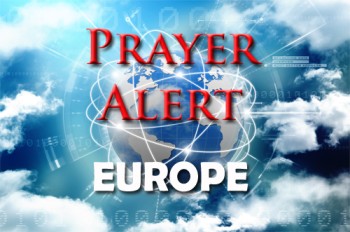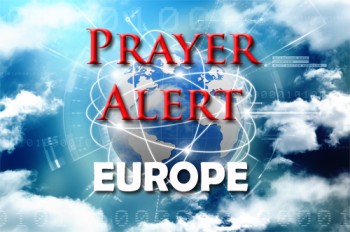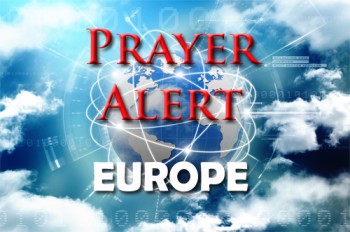Displaying items by tag: Ukraine
Ukraine: thousands without electricity as peace talks continue
Renewed Russian attacks on Ukraine’s energy infrastructure have left millions without power during freezing winter conditions. Volodymyr Zelensky said more than two hundred repair crews are working around the clock in Kyiv, where over 1,100 apartment buildings remain without electricity. Elsewhere, cluster munition strikes in eastern towns such as Druzhkivka killed civilians and injured many more. The attacks, whose effect was exacerbated by temperatures as low as -20C, followed a week’s pause requested by Donald Trump. Families have sheltered in metro stations, warming centres and makeshift tents as generators are brought in. Energy officials warn repairs will take time, with some key facilities severely damaged. The governor of a Russian town near the border said work was continuing to restore power and water services following a Ukrainian missile strike there earlier in the week. While US, Ukrainian and Russian representatives meet again in Abu Dhabi to discuss a peace plan, there are few signs of progress. As winter deepens, ordinary Ukrainians face exhaustion, grief, and uncertainty alongside continuing violence.
Russia: new report estimates over one million casualties in Ukraine war
A new report from the Centre for Strategic and International Studies estimates that around 1.2 million Russian troops have been killed, wounded or gone missing since the invasion of Ukraine nearly four years ago. Despite this enormous human cost, Russia has expanded its control of Ukrainian territory by only about 12%: in the past two years, only by 1.5%. The statistics challenge assertions that a Russian victory is inevitable, noting that Ukraine’s defensive strategy of trenches, mines, obstacles, drones and artillery has limited Russian advances to minimal gains. Mark Rutte has said that in December alone Russia lost 30,000 soldiers (in Afghanistan, they lost 20,000 in ten years). The toll far exceeds Russia’s losses in all its post–World War II conflicts combined. Economically, the war has weakened Russia’s long-term prospects, slowing growth, deepening labour shortages. The war is burdening the not only the current Russian economy but its future prospects, the report says: the country ‘is becoming a second- or third-rate economic power’. Yet Putin is unlikely to settle for a peace deal without further Western pressure on his regime.
Ukraine: Russian air strikes cause widespread energy loss
As Ukraine is enduring one of the harshest winters of the war, Russian strikes continue to target the country’s energy infrastructure. In Kyiv alone, around four thousand buildings remain without heating and nearly 60% of the city has lost electricity following recent attacks. Across the country, communities face similar disruptions amid freezing temperatures. Volodymyr Zelensky has declared a state of emergency in the energy sector, with schools closed, public lighting reduced, and hundreds of thousands leaving the capital. He has also criticised the mayor of Kyiv, former boxer Vitali Klitschko, for not doing enough to restore power quickly. Hospitals have reported more than a thousand cases of frostbite and hypothermia in recent weeks. Emergency warming tents now dot the city, offering shelter and food. Germany has described Russian winter attacks on energy as war crimes, and the International Criminal Court has issued arrest warrants for two top military officials said to be responsible for them.
Ukraine: UK and France agree to send troops if a peace deal is reached
The United Kingdom and France have agreed in principle to deploy troops in Ukraine if a peace deal with Russia is reached, marking a significant step in European security planning. Keir Starmer said the declaration of intent would allow British, French and partner forces to operate across Ukraine to deter future aggression, while Emmanuel Macron suggested thousands of troops could be involved. Allies meeting in Paris broadly agreed on the need for robust security guarantees, with the USA expected to lead monitoring of any ceasefire. However, major questions remain unresolved, particularly over territory occupied by Russia and the precise terms of enforcement. Moscow has warned foreign troops would be legitimate targets and has so far remained silent on the proposals. Volodymyr Zelensky, who said on 1 January that a peace deal was ‘90% ready’, welcomed the talks as progress but stressed that guarantees would only matter if they truly ended the war, as pressure grows on all sides to compromise.
Ukraine claims significant gain as European leaders meet
Ukraine has reported a significant battlefield development, with its armed forces reclaiming control over nearly 90% of the strategically important city of Kupiansk in the Kharkiv region. Commander-in-Chief Oleksandr Syrskyi announced the advance during a meeting with international allies, crediting targeted ‘search-and-strike’ operations and the resilience of his troops. Kupiansk, close to the Russian border, has long been a critical logistical hub and a focal point of intense fighting. Analysts say the Ukrainian gains could ease pressure on nearby frontline areas and disrupt Russian supply routes, though the wider conflict remains volatile, especially as winter conditions worsen. The update shows the fluid and contested nature of the war and the ongoing human and strategic costs of the conflict. Ukraine has also claimed to have destroyed a Russian submarine in the Black Sea: see Meanwhile, in a crucial summit on 18 December, at the time of writing European leaders are deadlocked on the thorny issue of whether to use frozen Russian funds to help Ukraine. See
Ukraine: Zelensky’s response to Trump’s criticisms
Donald Trump’s push to end the war in Ukraine is increasingly shaped by his impatience with Volodymyr Zelenskyy and European leaders who he believes are obstructing peace and future US–Russia economic ties. Stating that ‘Russia has the upper hand’ (a claim disputed by experts), he insisted Zelensky must ‘play ball’. Meanwhile, Zelensky and European partners worked to revise the US-led peace proposal, removing provisions which they considered unacceptable and stressing the need for firm security guarantees. Many commentators, alarmed by Trump’s pressure on Kyiv and his favourable posture toward Moscow, warn that conceding to Russia would reward aggression and endanger broader European security. In reply to Trump’s claim that Zelensky is using the war as an excuse to avoid holding elections, Zelensky has offered to do so if security could be guaranteed, although it would mean altering the constitution: see
Ukraine: Putin unwilling to accept peace proposal
The current round of diplomacy over the war in Ukraine suggests that Vladimir Putin remains firmly unwilling to accept any current peace proposal. After lengthy talks with Steve Witkoff and Jared Kushner, Kremlin aide Yuri Ushakov admitted that no compromise version has yet been found – not surprising given Putin’s increasingly uncompromising tone. He has denounced Ukraine’s leadership as a ‘thieving junta’, accused European leaders of obstructing peace efforts, and insisted Russia holds the battlefield initiative, even though many of his supposed gains are disputed by Ukraine and international observers. Russian state media has showcased Putin in military fatigues studying front-line maps, projecting confidence and momentum nearly four years into the invasion. Putin appears determined to convince both domestic and foreign audiences that he cannot be pressured into changing course. Yet sustaining war requires resources: oil and gas revenues are slipping, economic imbalances are widening, and the budget deficit is growing. The critical unknown is whether mounting economic strain will eventually alter the Kremlin’s wartime calculations.
Ukraine: differing signals about peace proposals
Hopes of a swift peace agreement to end Russia’s invasion of Ukraine have been tempered after the Kremlin cautioned against assuming a deal is close. Spokesman Dmitry Peskov said it was ‘premature’ to suggest a resolution may soon be reached, adding that outside actors - including the USA - might try to derail progress. His remarks followed more optimistic comments from Kremlin aide Yuri Ushakov, who confirmed Moscow had received a revised US-backed proposal developed with Ukrainian officials. Transcripts of leaked conversations suggest Russian negotiators believe the final document could align closely with their demands, while Steve Witkoff is expected to meet Vladimir Putin for further talks. Donald Trump has repeatedly highlighted what he calls strong momentum, claiming major points of disagreement have already been resolved. Yet elements reportedly included in draft proposals, such as Ukraine relinquishing the Donetsk region and abandoning NATO ambitions, remain deeply contentious for Kyiv. Diplomatic negotiations continue amid uncertainty and conflicting public signals.
Ukraine: two ministers dismissed over corruption allegations
Ukraine has been shaken by its most serious political crisis since the start of Russia’s full-scale invasion, after parliament voted to dismiss the energy and justice ministers in response to a major corruption investigation. The probe centres on an alleged $100 million scheme involving contracting at the state nuclear agency, implicating figures with close ties to the presidency and fuelling public outrage during a time of national sacrifice. Justice minister German Galushchenko and energy minister Svitlana Hrynchuk both resigned under pressure from Volodymyr Zelensky before lawmakers voted to remove them. While both deny wrongdoing, the scandal has energised opposition voices demanding deeper reforms, including changes within the president’s inner circle. Anti-corruption authorities have said their investigation, whose chief suspect is Zelenskiy's former business partner, includes other state agencies. With Ukraine still fighting for its survival against Russian aggression, the crisis underscores the critical need for transparency, accountability, and public trust in wartime leadership.
Russia and Belarus conduct military exercises as NATO feels the heat
Watched by US military officers and delegates from Turkey and Hungary, Russia and Belarus have launched large-scale military exercises across their territories and nearby seas, showcasing advanced weaponry and tactical nuclear capabilities near NATO’s eastern flank. The drills, involving roughly 6,800 troops as well as fighter jets and missiles, practised modern combat tactics like drone-assisted infantry assaults. Relations between Washington and Minsk seem to be improving; Belarus has recently released 52 political prisoners, prompting the Trump administration to ease some sanctions. Meanwhile, NATO allies remain uneasy after Russian drones repeatedly violated Polish and Romanian airspace. European leaders worry the exercises highlight Russia’s growing nuclear reach and evolving battlefield strategies, while Moscow insists it is open to dialogue but blames Western nations for obstructing progress toward resolving regional tensions.
